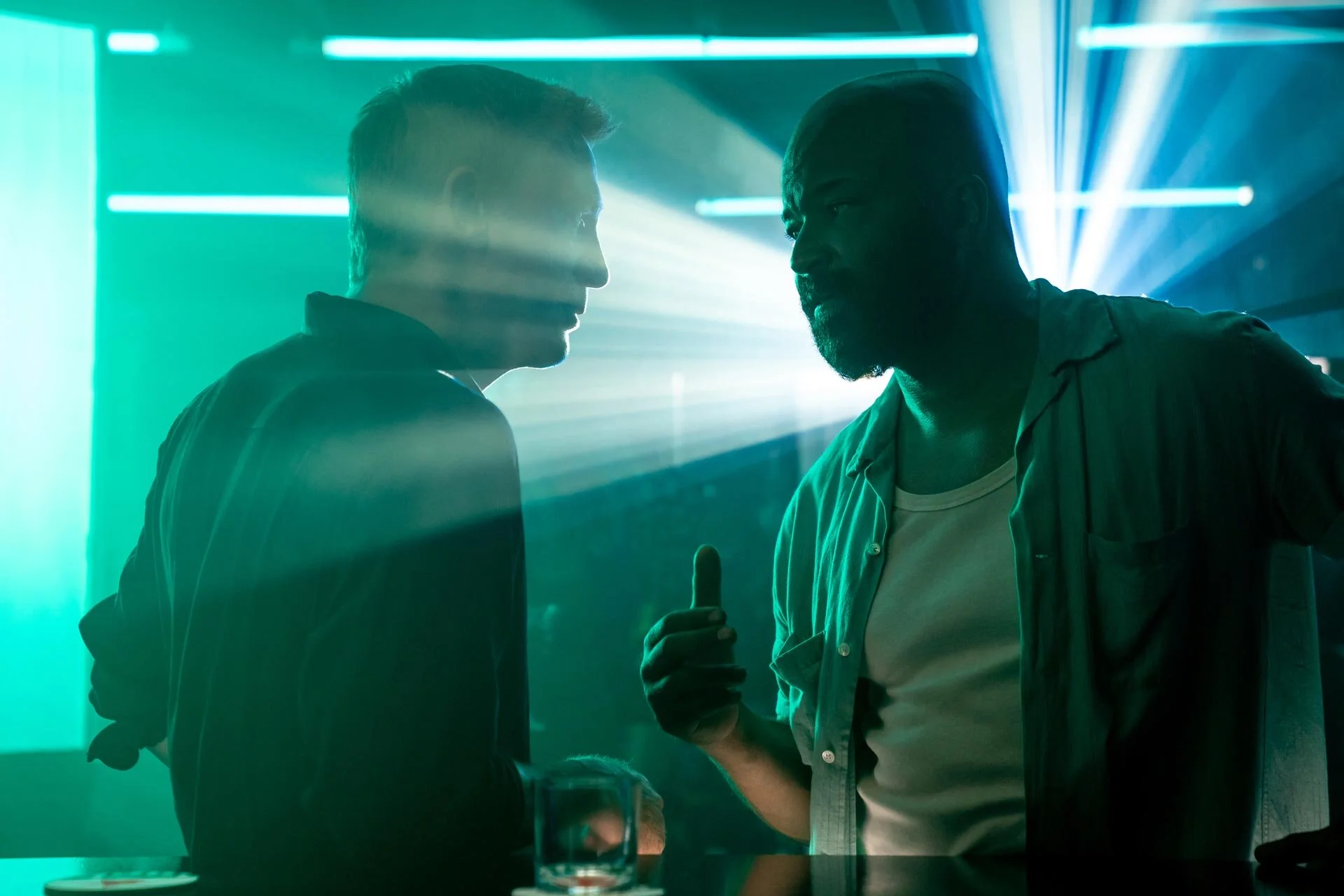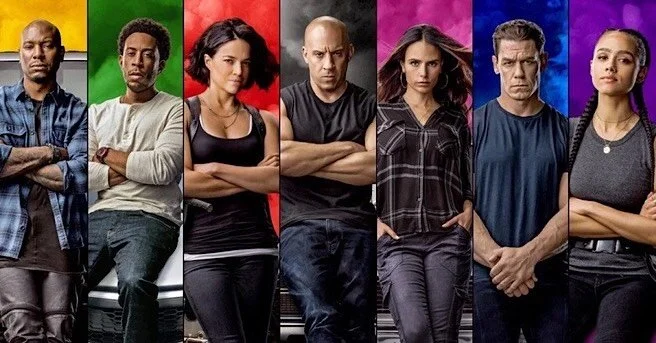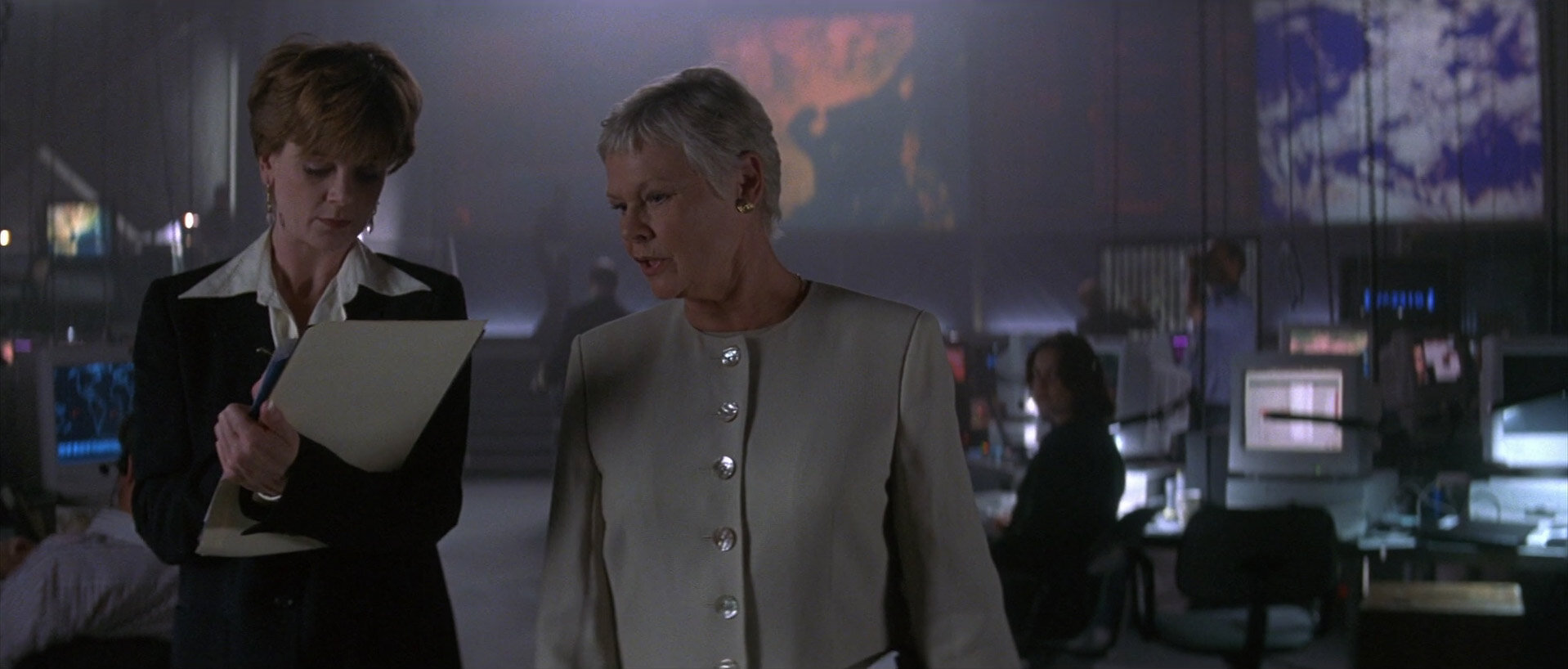No time for family?
Much as the Bond character might persuade us to indulge in a fantasy of being able to live self-sufficiently, the truth is he’s always been part of a family. 007’s recent adventures place him at the centre of an ever-expanding ‘found family’, something he has in common with the heroes of the Marvel, Star Wars and Fast & Furious cinematic franchises.
CHOSEN FAMILY (noun) [also known as ‘found family’]
Individuals who are not biologically or legally related who deliberately choose to support and nurture each other like family. - The Queens’ English The LGBTQIA+ Dictionary of Lingo and Colloquial Expressions
We don't need to be related to relate
We don't need to share genes or a surname
You are, you are
My chosen, chosen family
‘Chosen Family’, song by Rina Sawayama
They say you can’t choose your family. But for some queer people, choosing to spend their lives with people other than their blood relations is the only option there is. Even those who are not outright rejected by their families might struggle to find more than ‘tolerance’ from parents, siblings, grandparents, aunts, uncles and cousins. And who wants to live their life merely being tolerated?
Personally, I am fortunate to have a relatively accepting family. Some did take longer than others to come to terms with the whole gay thing and I have no doubt that not everyone has quite worked it all out in their heads yet, more than a decade after my initial coming out. It’s well established in the research that it can be like a grieving process for queers and their families, this process of adjusting to new identities. But my family would fall into the ‘accepting’ category (a term used by psychologists and sociologists as an antonym for ‘rejection’, although acceptance/rejection is far from being a binary).
Even with my ‘accepting’ family, sometimes it feels like there is a divide between us. They have not had the experience of growing up queer like I have. Being queer colours your whole world, and it’s far from being all rainbows, especially when you’re carrying around so much shame from an early age. My husband and my queer friends help to bridge the disconnect with a world I learned from an early age feared and hated me.
That’s why queers search out other queers. For those who have been outright rejected by the people who raised them, it’s about survival. For people like me, it’s about finding other people we can relate to on a deeper level. Sometimes we find those people in real life, other times we find them on cinema screens. Fortunately, in the last decade, there has been a flowering in franchise cinema of depictions of families which have more than DNA in common. Even the famously solitary Bond has found himself in the family way.
One man Bond
An orphan he may be, but that doesn’t mean Bond doesn’t have a family. Several characters keep popping up, with varying degrees of regularity. They include M, Bill Tanner, Moneypenny, Q, Felix Leiter, Rene Mathis and (in the novels only) the Double-0 section’s secretary Loelia Ponsonby. While not related by blood to any of them, they nevertheless constitute a heck of a support network.
That doesn’t prevent Fleming from trying to persuade us that his anti-hero is a brooding loner. In chapter 3 of the first novel Casino Royale, he tells us that “Bond would have preferred to work alone”. And in the penultimate book, You Only Live Twice, M describes Bond - in his obituary, as “solitary by nature”, although he is specifically referred to his school days, opening up the idea that he’s become more sociable as time has gone on.
Certainly, this is what has happened in the films, especially in the more recent Daniel Craig instalments. Skyfall saw the return of both Moneypenny and Q after both had been stripped from him in Casino Royale and Quantum of Solace, although these films did bring back Felix Leiter (swapped out for Jack Wade in the Brosnan era) and Quantum introduced Rory Kinnear’s Tanner, the character who is his bezzie mate in the books. Craig’s Bond and Kinnear’s Tanner seem increasingly intimate on screen, even more so than Michael Kitchen’s portrayal in GoldenEye/The World Is Not Enough. And he’s a lot friendlier than James Villiers’ Tanner in For Your Eyes Only (although this is probably down to Tanner having to take on M’s lines after Bernard Lee passed away just before shooting commenced).
Friendliness is not a prerequisite for family of course, and some of Bond’s found family have spent more time being exasperated with him than anything else. Q was initially more like a schoolmaster, wearily admonishing Bond before he morphed into something warmer. By Licence To Kill he was sufficiently worried about Bond’s well-being that he took himself out in the field, posing as his uncle. Desmond Llewellyn’s departure from the role - and film series - reads like a grandfather or elderly parent imparting some final life lesson. The Q portrayed by Ben Whishaw is harder to place in the MI6 family tree, not least because the flirty banter between him and 007 raises some awkwardly incestuous possibilities. But even if we stick with the traditional conception of family, it’s possible to see him as a tech-savvy nephew or a younger brother.
Bond has no shortage of brothers, most obviously his ‘brother from Langley’, Felix Leiter. Again, we shouldn’t read family as meaning ‘blood relation’ here because THE SEXUAL TENSION IS REAL between these two, especially in the Jeffrey Wright iteration.
Even though we have not seen Felix on screen for a couple of films, he was mentioned in Spectre. Bond knows he’s there when he needs him. And with Felix’s return in No Time To Die, the family is all here. The various trailers for No Time To Die highlight the presence of Bond’s family in a way that would have been alien a couple of decades earlier. In earlier promotional material, even the stalwarts - M, Q and Moneypenny - barely warrant a look-in. Each mission is presented as a one man crusade rather than a collaborative effort. In contrast, in the No Time To Die trailer, each member of the family - including estranged partner Madeleine and new younger sister Nomi - is given their moment. And even Bond himself says “If we don’t do this, there will be nothing left to save.” This suggests that the film’s final act will require the family to work together, similar to how things panned out in the finale of Spectre, with each family member playing an important role.
The message is clear: Bond is not alone.
Franchising the family
The recent Bond films are not alone in depicting found families. It’s a trend across most of the highest-grossing movie franchises. While I despise using the term franchise in a film context (you will rarely see it used elsewhere on this website, intentionally), it’s hard to get around here. And while I really don’t want to bring something as gauche as money into a discussion of something as precious as found family, producers of mass media appear to have cottoned on to the fact that this is what audiences want.
The movies made under the banners of Marvel, Star Wars and Fast & Furious are increasingly confounding the idea that you need to share genes to be a family.
[This section contains spoilers for recently released titles in each of these franchises]
In Marvel’s Black Widow, Russian spy turned Avenger Natasha Romanoff may spend two decades living out as a brooding loner character, like her idol Bond, but the superhero film bookends this pretty miserable period of her life with scenes of her en famille. Although we may not realise it initially (and the film does a wonderful job of wrongfooting us in its very exciting Bond-like pre-title sequence), she is not related by blood to her father, mother or younger sister. By the end of the film, they have all found acceptance with each other and become a family unit once again. Found family is not just a theme of the film: it IS the film.
Much has been made of this film’s reverence for Bond cinematic style and I shan’t list all of the crossovers here (@tgemm has already done a great job of this here). But what has been mostly overlooked is this shared interest in presenting a character at odds with the world and navigating their way with the support of their found family. It’s undoubtedly the reason why I connected with it so much, even when I find the wider ‘Marvel Cinematic Universe’ increasingly ennui-inducing.
It’s no surprise that Star Wars is invested in the traditional idea of family. George Lucas’ space opus draws deeply on Ancient myths which are often focused around blood relations and their struggles. The conflicts within the Skywalker family get just as bloody as their Greek and Roman antecedents. Notably lacking in Star Wars (fortunate for all concerned) is the incest which is a centrepiece of many classic myths. Zeus forcing himself on his sister, Demeter, is a galaxy far, far away from Luke being smooched by his unsuspecting sister. Nevertheless, the family dynamics can seem forced at times, especially in The Rise of Skywalker, where the heroine is revealed to be the granddaughter of the Big Bad just because… this is Star Wars and everyone has to be related to someone? While she does eventually take on the name of her mentor, invoking the idea of choosing your family, it’s all a bit trite and too little too late, undoing the promise of the preceding film, The Last Jedi, which seemed to be pushing things in a more interesting direction. That film took as its explicit theme the democratisation of the Force.
Literally anyone could be a Jedi, even someone who was essentially a ‘no one’, devoid of a genetic connection to the mystical power. The Jedi Order was being set up to be the ultimate found family. It made the whole film resonate with queerness. No wonder The Last Jedi divided audiences.
It’s strange to recall considering where we are now, but the wildly entertaining Fast and Furious soap opera saga began as a fun but fairly low-rev bromance and has now gone through the gears to become Bond with (even more) fast cars and (even more) outrageous stunts. The eighth installment went ‘full Moonraker’ and things show no signs of slowing down. Right from the beginning, the films have taken family as their main preoccupation, to the extent that it’s become meme-worthy. It is guaranteed that, at some point, Vin Diesel will make a speech about family. And each film increases the number of ‘family’ members, most of whom aren’t blood relations.
These blockbuster films succeed because, no matter how outlandish they get, they are rooted in something we all crave and need: family.
Much as we try to persuade ourselves that we are self-sufficient, human beings are social creatures. The Covid pandemic has shown us just how much we need other people. Solitary heroes have their place - on the cinema screen and within the pages of paperback novels - but real life is hard enough as it is.
Like Bond, we may lose people from our lives. But we also need to be alert to the fact there are others, like us, wanting to be found.
Further reading
I explored found family extensively in my queer re-view of Tomorrow Never Dies. Here’s an excerpt:
“There’s something about Bond that is incompatible with the traditional idea of family. Like many queer people, he has to go out and find his own. Bond is positioned as the wayward member of the MI6 family. He may be the ‘White Knight’ but he’s also the black sheep, the little brother or nephew who gets away with murder because you can’t be cross at him for too long.”








